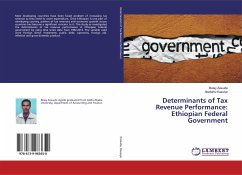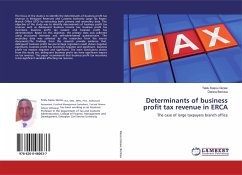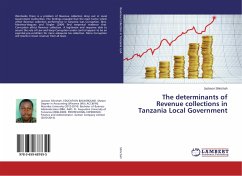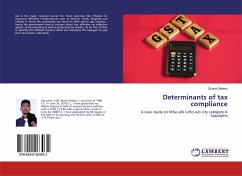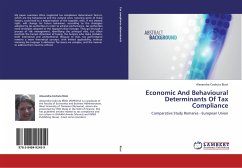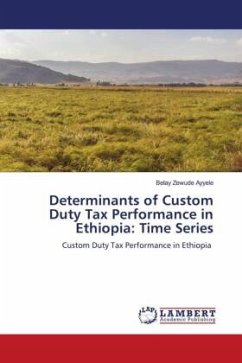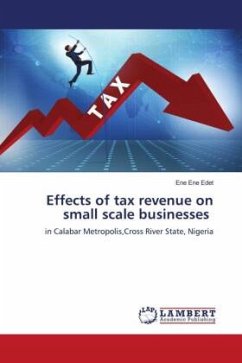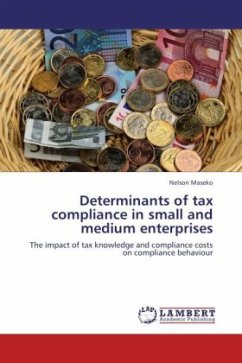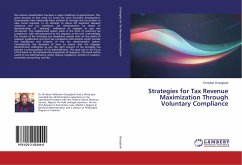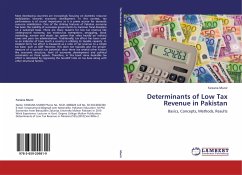
Determinants of Low Tax Revenue in Pakistan
Basics, Concepts, Methods, Results
Versandkostenfrei!
Versandfertig in 6-10 Tagen
32,99 €
inkl. MwSt.

PAYBACK Punkte
16 °P sammeln!
Most developing countries are increasingly focusing on domestic resource mobilization towards economic development. In this context, tax performance is of crucial importance as it is prime source for domestic resource mobilization. One of the striking features of Pakistan economy has been the inability of successive governments to maintain fiscal discipline on a sustained basis. There are many reasons for low tax revenue like underground economy, tax evasion,tax exemptions, smuggling, black marketing, narrow and elastic tax system that relies heavily on indirect taxes and poor tax administrati...
Most developing countries are increasingly focusing on domestic resource mobilization towards economic development. In this context, tax performance is of crucial importance as it is prime source for domestic resource mobilization. One of the striking features of Pakistan economy has been the inability of successive governments to maintain fiscal discipline on a sustained basis. There are many reasons for low tax revenue like underground economy, tax evasion,tax exemptions, smuggling, black marketing, narrow and elastic tax system that relies heavily on indirect taxes and poor tax administration. Traditionally, tax effort has been used as an indicator of how much a country is utilizing its taxable capacity. In simplest form, tax effort is measured as a ratio of tax revenue to a simple tax base, such as GDP. However, this does not typically give the proper measure of a country's tax potential, since there are several other factors like economic structure, level of economic development and political constraints on fiscal system. Therefore, in this book more desirable tax effort is calculated by regressing the tax-GDP ratio on tax base along with other structural factors.



